MercoPress. South Atlantic News Agency
Fisheries
-
Monday, December 11th 2017 - 01:48 UTC
Fishing subsidies to be on the WTO summit table in Buenos Aires

Meeting for the first time in Latin America, the World Trade Organization’s 11th Ministerial Conference will take place in Buenos Aires from 10-13 December. Central to this year’s talks will be an international deal to curb harmful fishing subsidies. These are government payments or tax breaks that contribute to overcapacity, overfishing and illegal fishing (IUU) globally.
-
Friday, December 8th 2017 - 08:15 UTC
Falklands Code of Practice covers much of ILO Work in Fishing Convention
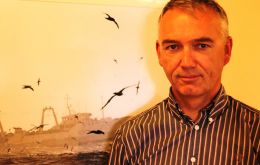
A convention which has been described as opening up a new era for millions of fishermen worldwide will have some impact on fishermen working in the Falkland Islands' waters. Director of Natural Resources John Barton said that he thought some of the articles of the International Labour Organization (ILO) Work in Fishing Convention 2007 would be enshrined into Falklands licensing conditions make them more robust.
-
Friday, December 8th 2017 - 06:31 UTC
Falklands promotes fish in China from Fortuna's new processing plant in Stanley
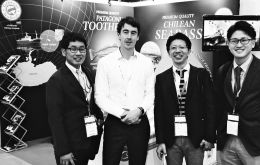
Products from the Falkland Islands Fish Company, the trading name of Fortuna Ltd’s new Stanley fish processing plant, were featured recently in China and attracted favorable attention from trade media.
-
Tuesday, December 5th 2017 - 08:48 UTC
South Georgia launches four-year toothfish licensing round
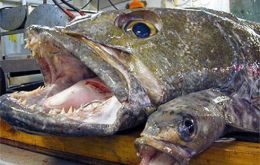
The Government of South Georgia and the South Sandwich Islands has launched the next toothfish licensing round. The documentation offered provides information for anyone applying for a license to fish for toothfish in the South Georgia & the South Sandwich Islands Maritime Zone for the years 2018 – 2021. The deadline for applications is 10 December, according to the latest SGSSI Newsletter.
-
Saturday, December 2nd 2017 - 08:56 UTC
World's biggest marine reserve in Antarctica's Ross Sea comes into effect
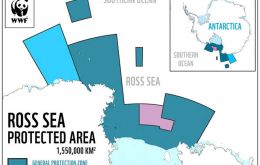
The world's biggest marine reserve in Antarctica officially comes into effect on Friday, in what has been hailed as a “watershed” moment in conservation. The marine protected area in the Ross Sea curbs damaging activities such as fishing, to protect wildlife including Adelie and emperor penguins in the high seas off Antarctica.
-
Monday, November 27th 2017 - 09:09 UTC
Mexico creates the largest marine protected area in North America
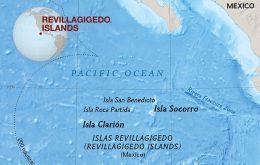
Mexico’s president, Enrique Peña Nieto, signed a decree creating a massive marine reserve, spanning 57,000 square miles around the four Revillagigedo Islands—a volcanic archipelago 240 miles southwest of the Baja Peninsula. The reserve is the largest marine protected area yet created in North America.
-
Friday, November 24th 2017 - 08:02 UTC
Falklands receives port of Vigo experts to address port potential and development
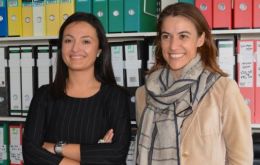
A delegation of two technicians from the Spanish Port of Vigo are visiting the Falkland Islands with the aim of offering their informed opinions on potential port development. The Falklands has a close business relationships with the port as a result of long term joint business ventures with Spanish fishing companies, and the new Falklands longliner CFL Hunter was built there.
-
Thursday, November 23rd 2017 - 07:29 UTC
ASC and MSC release joint seaweed standard; US$ 5.6bn global business

The Marine Stewardship Council (MSC) and the Aquaculture Stewardship Council (ASC) announced the launch of the ASC-MSC Seaweed Standard. The joint standard marks a first for the two certification programmes, bringing together expertise in sustainable fishing and responsible aquaculture.
-
Tuesday, November 21st 2017 - 09:27 UTC
Wales and Galicia sign bilateral accord to minimize Brexit impact for fishing sector
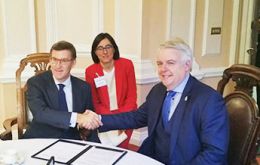
Galicia and Wales intend to sign their own bilateral agreement to try to minimize the impact that Brexit will have and avoid damage to the fishing sector. The announcement was made by Galician president Alberto Núñez Feijoo, after having obtained a positive response to his invitation to the Welsh prime minister, Carwyn Jones.
-
Monday, November 20th 2017 - 09:27 UTC
The Work in Fishing Convention, ILO 188, has come into force
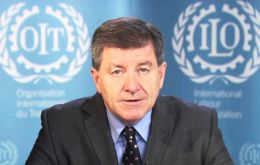
A major boost to efforts to improve working conditions for millions of workers in the fishing sector came into force on November 16 with the International Labor Convention 188.
